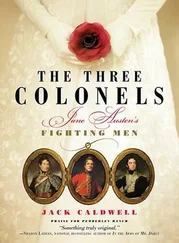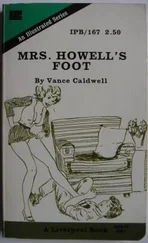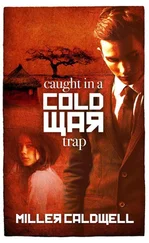The prosecutor wished to hear no more from her. Her evidence had confirmed that Eicke had indeed been the main Gestapo man in Hamburg and had been responsible for mass deportations of members of the Jewish community. Similar evidence had come from the previous witnesses. In addition, his overseeing Hilda’s work in Portugal did show Eicke’s hand in its planning and execution.
The court adjourned for lunch. A two course meal appeared for witnesses. Hilda was not hungry. She sipped some water, on edge and anxious to return to the court and get the process over with. The prosecution had been gentle despite being wrong-footed at first by Eicke’s allegations. She knew his defence counsel would be less compassionate. Eicke’s life was at stake and she anticipated some tough questioning.
She returned to the witness box at five past two. A reminder was given that she was still under oath.
The defence lawyer was an imposing man, well over six feet tall. Beneath his black gown he wore a dark suit with a bright red tie. His expression was fierce; Hilda thought he looked as if he was after her blood.
‘You say, Frau Richter, that Herr Eicke was your son’s youth leader; a responsible position, is that not so?’
‘That is true. He was the Hitler Youth leader for several years before the war. My son did speak highly of him,’ she said, trying to show she could offer him an honest and balanced view.
‘And this man, whom you trusted to care for your son, rewarded you, is that not so?’
‘Rewarded?’ she queried, wondering what he was trying to dig out of her.
‘Yes. Did your association with my client not lead to a rather prestigious award?’ he reiterated.
She hesitated. She was forced to admit to something very uncomfortable indeed.
‘Your answer, Frau Richter, I am waiting.’
There was nothing for it but to tell the truth – though perhaps not quite the truth the defence counsel was expecting.
‘Indeed, I must be the only British agent to have been awarded the Eagle Civilian Cross. Not for a piece of espionage on behalf of the Axis, I assure you. The intention was to guarantee my loyalty, an incentive as it were. Or so I overheard.’
‘Overheard?’
‘Yes. That is what I heard when I left the room after receiving the medal, as I bent down to tie my shoelace by the door. The only people left in the room at that time were Gerhardt Eicke and Reinhardt Heydrich. It was the latter who presented me with the medal, because of his gratitude to my late husband for the medical attention given to his mother. Herr Eicke had nothing to do with the honour.’
There was a gasp of astonishment when she identified the men involved. It also brought into sharp focus the fact that Gerhardt Eicke was in personal touch with Heydrich, the Butcher of Prague, and the prime mover behind the Final Solution. The defence lawyer had not expected that blow. He pondered for a few moments, but no question came. He then went over to Eicke and spoke to him for a minute or so. Hilda fiddled with the button on her cardigan and felt the palm of her hands begin to sweat as she waited for his next sally. It never came. So far, to whatever he had asked, she had found a response, thereby putting his client in an even worse light than he already was. Hilda held her breath as the defence lawyer returned to his position on the floor.
‘I have no more questions,’ he said.
The button broke loose and fell to the floor of the witness box. She bent down to gather it up, and a court usher ran to her aid, apparently thinking she had fainted. She stood up quickly, feeling a need to explain her jack-in-the-box act. She raised her hand and showed the orange button. A smiling titter went round the court. She felt relief as she stood down from the witness box, only fearing her legs would not support her as she walked away. Surely, her evidence had added some weight to the prosecutor’s case. It appeared Eicke was amazed that she had apparently come back from the dead. Consequently, his lawyer had failed to feed his defence with the most damning aspects of her work for him. The enthusiasm she had worked hard to show during her training had slipped by, and no reference at all to the first set of Portuguese coordinates she had supplied to Berlin was mentioned. Perhaps the button had been a lucky one; she held it firm in her fingers as she made her way to the public gallery to view the remainder of the day’s proceedings.
The afternoon session lasted until half past four. On two occasions her eyes turned to meet Eicke’s. On the first time, she bit her lip and saw him draw his eyebrows together with a mean look on his face. Later, on the second occasion when their eyes met, Hilda shook her head and Eicke looked away, down at the floor. By the end of the day’s proceedings, Hilda was drained and exhausted firstly by her own interrogation and then secondly by the oppressive and at times claustrophobic atmosphere of the court. Yet it was a sight to remember; this was the concluding act of the war, and she had played her part in it.
That evening she ate in a local restaurant, relishing her sense of freedom. Her evidence would help to imprison Eicke for life, or possibly worse, and her departure from Germany was fast approaching. When she returned to the hotel, Elise the manageress invited her to the lounge to play her oboe. Together they played some German children’s tunes, which reminded them of their sons’ childhood; then she moved to the piano and found the music her host’s son had last played, Mahler’s Piano Quartet in A minor. Elise told her that her son had still been practising this piece and had not perfected it. Soon Mahler’s rich melody filled the room, bringing more guests to the lounge. As she played, Hilda wondered how Austria could have produced within such a short span such a joyous composer and such an evil dictator.
Tomorrow she would start her journey to Finland and prepare for a happy future. First, there was a pressing engagement. She needed to return to the court to hear the conclusion of Gerhardt Eicke’s case.
Chapter 29
Death and New Life
Next morning Hilda sat in the gallery of the vast arena as the prosecution began the closing statements. She could tell from the summary that her evidence had concurred with that of other witnesses who had testified before and after her.
The defence counsel’s summary was less encouraging. Much was made of Hilda’s work for the Reich and little of the contribution she had made to the Allies’ cause. Inevitably, the covert training at Baden-Baden was highlighted, and she was described as a German spy beyond doubt. It was also suggested that she should have been in the dock and not the witness box. She gulped at hearing that part of Eicke’s defence. She could not deny any of it; yet in truth, the information she had already supplied to the Reich regarding the airfields had hardly helped their cause. Then, of course, came the universal defence: Eicke claimed he was acting under duress, working from instructions issued by Heydrich himself. How could he not do, as he was told? After all, he was a happily married man, not a heartless beast; he could not put his family at risk.
The defence counsel concluded by describing Hilda as an unreliable witness, a woman with a grudge. A German widow, or more accurately a Scottish widow, with an axe to grind. It was no more than she had expected. The stakes were high for his client, and attacking the prosecution witnesses was any legal representative’s duty. On the plus side, however, Eicke might still have believed she was an imposter, but his counsel did not and Hilda did not believe anyone else in that court that day did either.
Oh how she wished to break the silence regarding her translation duties at Bletchley Park, but that information remained strictly confidential. It did not seem fair.
Читать дальше












